President Trump’s administration has accurately described Pakistan’s support for terrorism in general and the Afghan Taliban in particular. But it has yet to lay out a strategy to deal with the issue, argues Bruce Riedel. This piece originally appeared on the Daily Beast.
Earlier this week President Donald Trump tweeted that his two predecessors had spent $33 billion in aid attempting unsuccessfully to persuade Pakistan to change its policies protecting terrorists. “No more!” he vowed.
Trump’s proclamation on Twitter shouldn’t come as a surprise. His administration has accurately described Pakistan’s support for terrorism in general and the Afghan Taliban in particular.
But it has yet to lay out a strategy to deal with the issue.
Pakistan’s generals, who run the policy supporting terrorism, believe Trump is all bark and no bite. And so far they look to be right, but there is much Washington can do if it is serious.
For months the administration has spoken out clearly about the Pakistani army’s longstanding support for organizations like the Haqqani network in the Afghan Taliban and Lashkar e Tayyiba, focused on Kashmir and India.
The army and its intelligence service, the Inter Services Intelligence directorate (ISI), has trained, equipped, advised and directed the Afghan Taliban and LeT for decades. The ISI was deeply involved in Taliban attacks in Kabul and the LeT attack in Mumbai in 2008. It facilitates their fundraising in the Gulf states. It provides safe haven and sanctuary for the leadership of these groups. LeT leader Hafiz Saeed operates openly in Pakistan, routinely denouncing America, India, and Israel.
The United States has foolishly given Pakistan more than 33 billion dollars in aid over the last 15 years, and they have given us nothing but lies & deceit, thinking of our leaders as fools. They give safe haven to the terrorists we hunt in Afghanistan, with little help. No more!
— Donald J. Trump (@realDonaldTrump) January 1, 2018
Trump officials have been explicit and unequivocal about all this, including in the roll out of their Afghanistan policy and the overall presentation of security strategy.
“We will press Pakistan to intensify its counterterrorism efforts, since no partnership can survive a country’s support for militants and terrorists who target a partner’s own service members and officials,” read the National Security Strategy document issued in December. “The United States will also encourage Pakistan to continue demonstrating that it is a responsible steward of its nuclear assets,” which no doubt are a complicating factor.
But most of the $33 billion in aid that Trump referred to, more than $25 billion, was provided before the SEAL raid that found and killed Osama bin Laden hiding in the army cantonment city of Abbottabad in 2011. Withholding money is not much of a penalty, the $250 million in the pipeline is an insignificant threat.
Meanwhile, the administration has done little to engage the Pakistanis. Trump snubbed the Pakistani leadership when he visited Saudi Arabia on his first foreign travel, even though the Saudis has brought the top political leadership to the Riyadh summit. Pence did not travel to Pakistan. Nor has the administration tried to rally our allies in NATO to press the Pakistanis about Afghanistan, which is their war, too.
The Pakistani establishment believe that Washington and especially the president is not seriously committed to the Afghan mission and will eventually disengage from America’s longest war, leaving Pakistan and the Afghan Taliban the winners. The President has already said his generals convinced him to ignore his own predilection to get out of Afghanistan immediately. If they fail to show significant progress this year, Trump may well go with his own gut.
There is much the administration can do to alter Pakistan’s assessment. Some steps would be mostly symbolic but important. Washington could remove Pakistan from the category of a major non-NATO ally which George W. Bush gave it, a designation that has nothing to do with NATO but does qualify the country for receiving certain military technologies. The administration could also recall our ambassador and not replace him.
A more substantial approach would involve exploiting the president’s strong relationships with Saudi Arabia and the United Arab Emirates. Both host large émigré Pakistani worker populations and have been major aid donors to Pakistan’s economy. The former head of the Afghan Taliban, Mullah Mansour, was a frequent traveler to Dubai and Manama, Bahrain, to raise money for the group until he was killed in a drone strike in 2016 in Pakistan’s Baluchistan province.
The Trump team should press Mohammed bin Salman in Riyadh and Mohammed bin Zayed in Abu Dhabi, the powerful crown princes of their countries, to not only shut down the Taliban’s fund raising but to prosecute their funders even if they have royal connections. Both states have close ties to the ISI.
The Saudis and their gulf allies say they are committed to fighting terrorism. Washington should put the Afghan Taliban, which kills American soldiers, at the top of the list.
Moreover, the Saudis should use their considerable influence to cut the ISI aid to the Taliban. Former Prime Minister Nawaz Sharif was just in Riyadh looking for Saudi help. He and his brother Shabaz, who also just visited the kingdom, are the two most important civilian politicians in their country. The generals are frequent visitors to Saudi Arabia as well.
The most extreme step the administration can take is to label Pakistan a state sponsor of terrorism, like Iran. This would cut off all assistance and engagement with Pakistan. It would cut spare parts for the F16s in the Pakistan Air Force and other equipment provided since 2001. The United States would block multinational bank funding for Pakistan’s economy. It’s a draconian step but the evidence clearly qualifies for Pakistan’s designation.
George H.W. Bush considered the step in 1992 when I was the Pakistan desk officer in the White House. He wrote to then Prime Minister Nawaz Sharif threatening designation. But both Bush and Sharif were out of power before the issue came to closure. It’s probably better used as a threat than actually implemented, but it’s in Trump’s tool bag.
An alternative approach is to rely primarily on unilateral actions by our own security services. President Barack Obama made the top priority of his administration’s AfPak policy the disruption, dismantling, and defeat of the al-Qaida core in Pakistan in 2009. The drone war was the means and it was pursued relentlessly despite Pakistan’s vocal objections. It was a success. Al-Qaida in Pakistan is a shell of what it was in 2009. Obama only used the drones sparingly against the Taliban, but they did get the group’s leader, Mullah Mansour, in 2016, in Pakistan.
The Taliban is a harder target than al-Qaida was because it often operates in major Pakistani cities like Quetta and Karachi, but it is vulnerable to disruption.
The virtue of the unilateral approach is it doesn’t rely on Pakistani cooperation, which is an unlikely outcome at best. It can also be used in conjunction with an engagement approach that acknowledges that Pakistan is a major victim of terrorism as well as a patron sponsor.
The administration, which has been debating policy for a year, does have options at its disposal.
A comprehensive approach that utilizes multiple tools—diplomatic, economic and covert—is best. Engagement with the elected leadership of Pakistan and also a reach out directly to the Pakistani people, the greatest victims of the ISI’s blowback, should be incorporated. China and India should be consulted.
The administration has diagnosed the problem, now it is facing the hard part. It won’t be easy. Pakistan is in the midst of a complex political meltdown, engineered by the army and others. New elections will come this year. But the need for urgency is also real, especially for our troops in Afghanistan. Congress should press for more than a tweet.
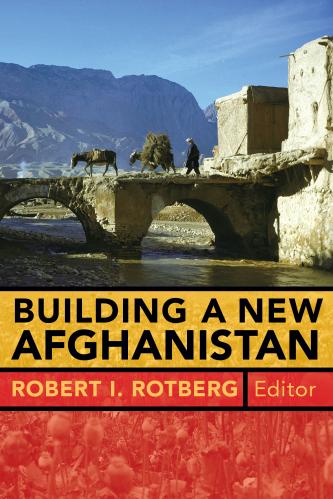
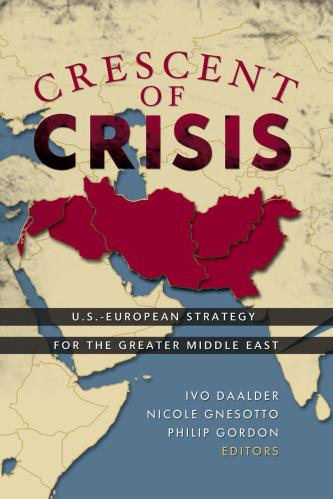
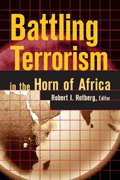
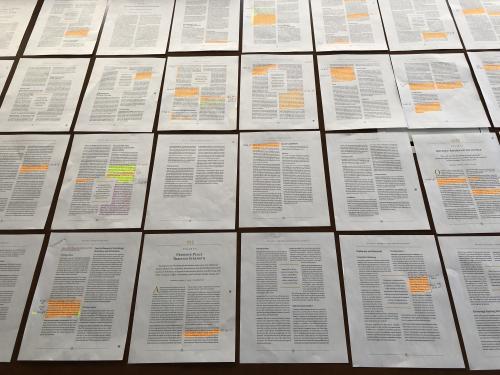

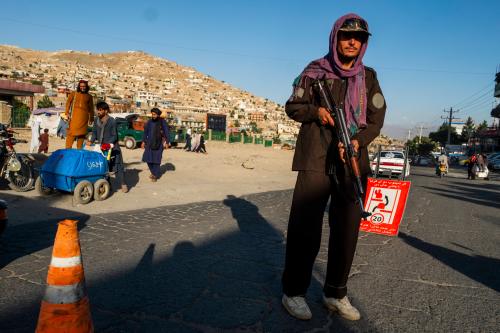
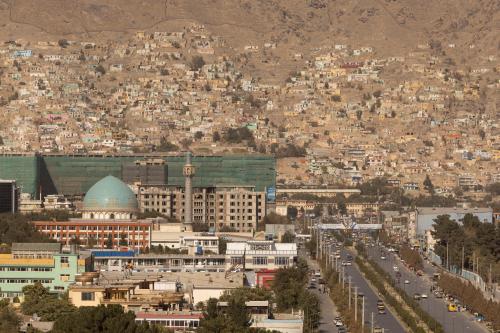
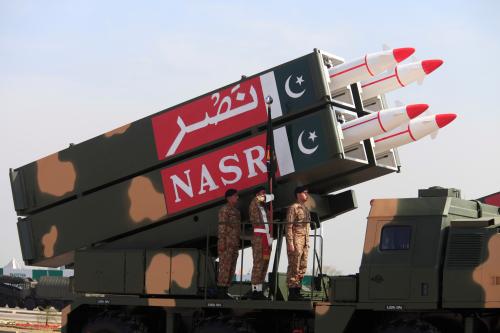
Commentary
Trump is right: Pakistan is a terrorist haven. But what will he do about it?
January 4, 2018